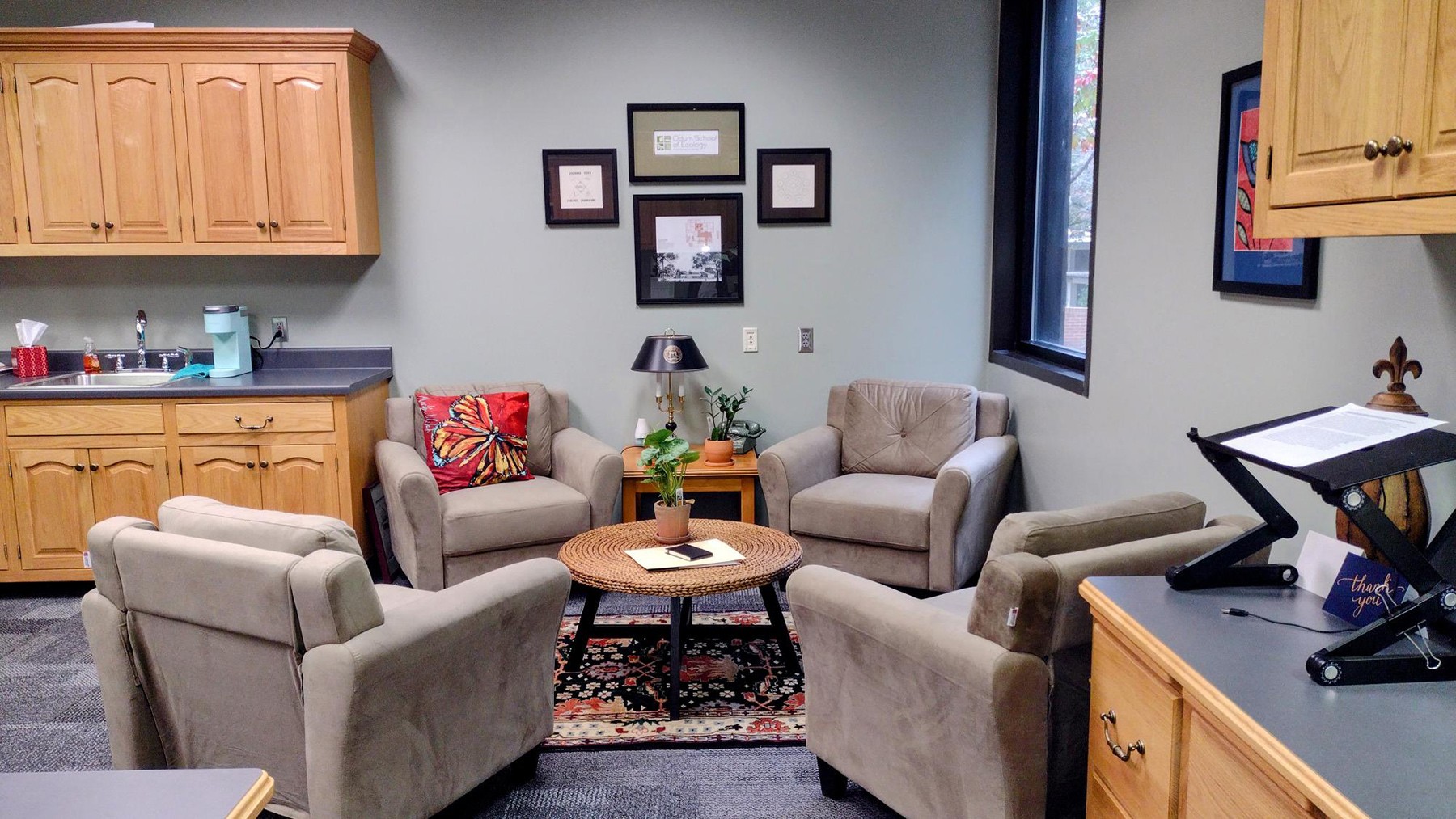February was another busy month in the Odum School of Ecology! The 28th annual Graduate Student Symposium took place on Feb. 11-12. This year’s student-run hybrid event featured 27 graduate student talks, 13 undergrad posters, and a keynote presentation by alum and NC state professor Marcelo Ardón. Faculty, staff, and students shared time and exchanged ideas with colleagues during lunch and coffee breaks in the lovely spring-like weather. Congrats to organizers Megan Tomamichel and Andrew Nagy, the GSS organizing committee, and all of the student presenters for an engaging event.
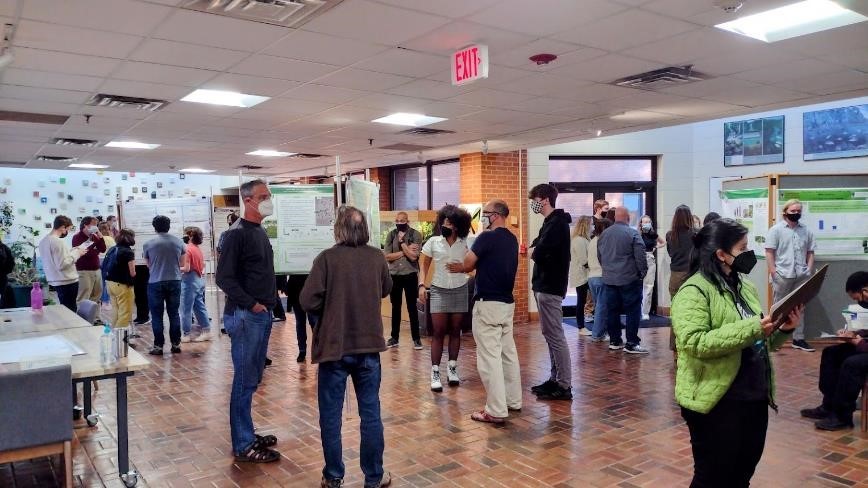
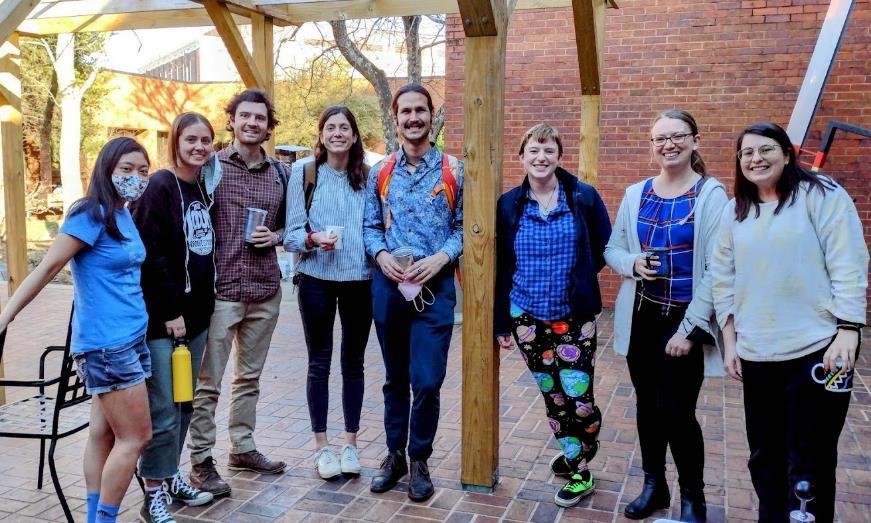
Saturday’s schedule for the Graduate Student Symposium began with the annual John K. Spencer memorial 5k run & walk, at Ecology’s Horseshoe Bend field site, to honor cherished alum John Spencer. John was a MS student in Ecology with a passion for freshwater ecology, conservation, and the outdoors. A graduate student fellowship and separate research fund were established to honor his memory and support Ecology MS students and their work, in affiliation with the UGA River Basin Center. This year’s run was organized by Nate Tomzyck and Anna Baynes, and took runners on a loop along the Oconee River on a brisk, sunny morning. Coffee, treats and a small campfire were waiting for us at the finish line!
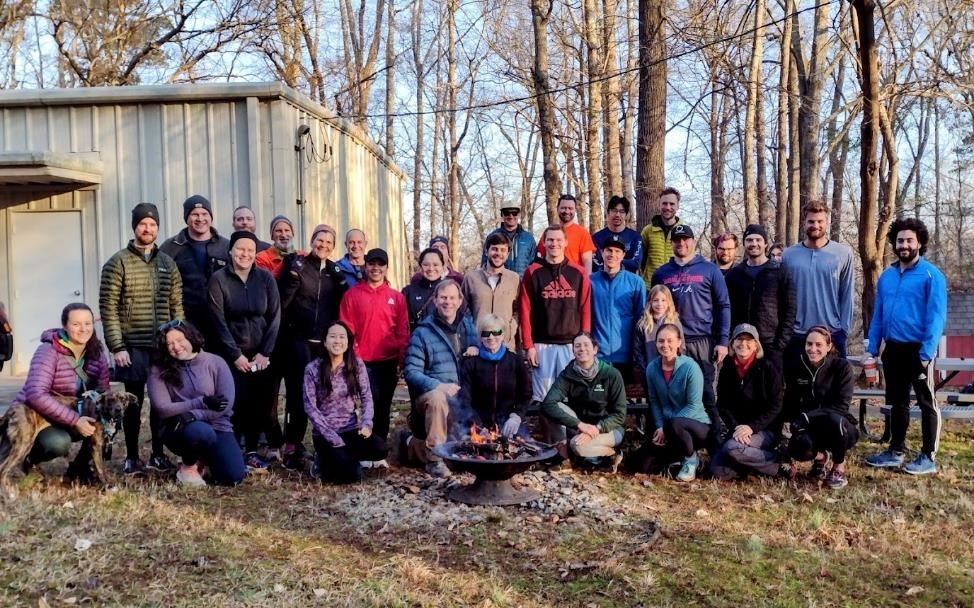
On Feb. 26, the Odum School was honored to host our 2022 Parents & Families Day, to share the research, teaching, and mentoring programs in our school with undergraduate student families. Families heard about study away programs in Costa Rica and South Africa, experienced how active learning and service learning work in ecology classes, and listened to a panel of Odum School alumni discuss their diverse career paths. Visitors toured several ecology research labs to discover current work on marine invasive species, animal collective behavior, and initiatives led by UGA’s River Basin Center and the Center for the Ecology of Infectious Diseases. We thank our parents and families for spending time with us, and for continually supporting student engagement and experiential learning at the University of Georgia.
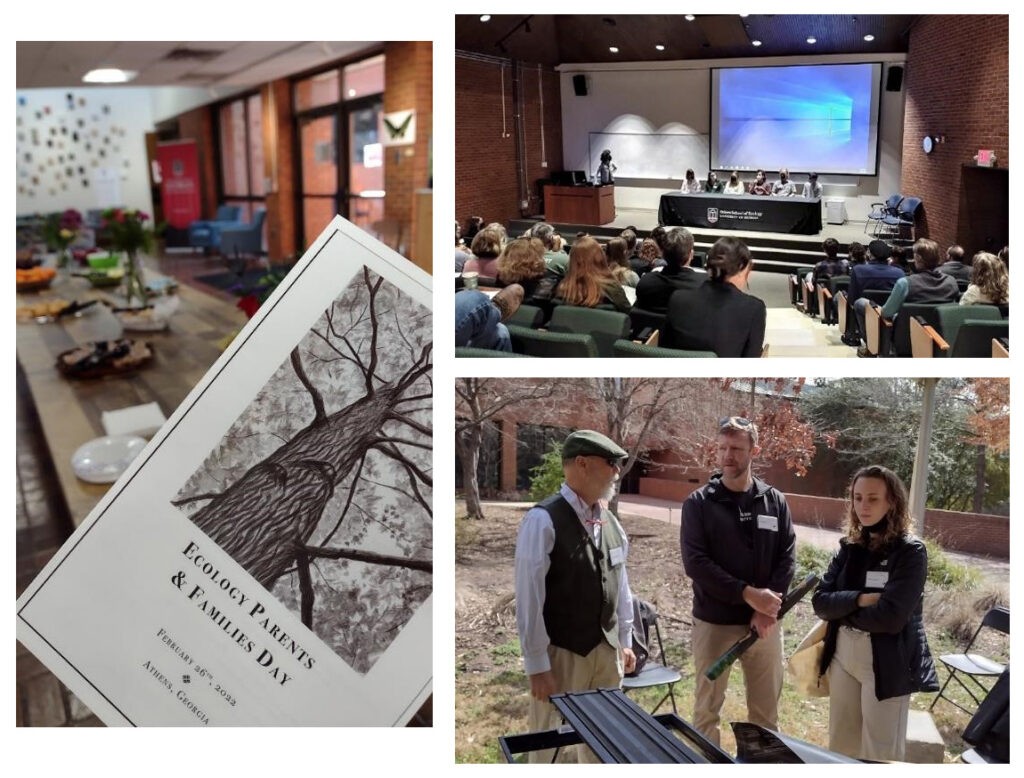
Finally, February offered us the opportunity to reflect on contributions from Black Americans and women to discoveries in science and other academic disciplines. February is Black History Month, which celebrates the accomplishments and contributions of Black Americans to U.S. history. Here in Georgia, Black students were first admitted to UGA in 1961 (the same year that the Institute of Ecology was formed on UGA’s campus) when Hamilton Holmes and Charlayne Hunter enrolled following a legal battle. A year later, in 1962, Mary Frances Early became the first African American to earn a UGA degree (master’s in music education). In 2020, the UGA College of Education was named in honor of Mary Frances Early, and the Holmes-Hunter Building, located next to the arch on North Campus, is undergoing renovation this year.
In the field of ecology, we have an opportunity and responsibility to amplify the discoveries and voices of influential Black scientists. For example, a year ago, the Ecological Society of America hosted a conversation with three Black ecologists at different stages of their career, which can be viewed online. In 2019, the Nature Conservancy profiled six Black conservation leaders who broke barriers to contribute to environmental science and conservation. We encourage Odum School members to learn more about the discoveries of these and other Black ecologists, incorporate their findings into our teaching and research, and consider ways that we can recruit, mentor, and support our Black colleagues and students. In the last year, the Odum School’s Diversity, Equity, and Inclusion Committee conducted focus groups and surveys to solicit feedback from students, staff, and faculty on ways to strengthen our strategies for promoting racial inclusivity. The resulting action plan is now serving as the basis for our school’s contribution to the university’s comprehensive Diversity and Inclusion Excellence Plan. We are developing a website to explain and showcase our ongoing work and attention to the importance of diversity in ecology.
February 11 was also the seventh annual International Day of Women and Girls in Science, a day that focuses attention on the need for gender equity in access and participation for women and girls in science. During the past two decades, more women have become engaged in science. Yet globally, women and girls continue to face obstacles. Here in the U.S., women have made tremendous strides towards participating in higher education, but are still underrepresented in many science fields. In academia, women tend to receive smaller research grants and lower compensation than their male colleagues, are promoted more slowly, and are less represented at the highest career ranks. Despite women represent nearly half of all bachelor degree recipients in science, only 12% of members of the National Academies are women, according to a report by the National Committee on Women in Science, Engineering and Medicine. Moreover, the ongoing Covid-19 pandemic has had a disproportionate impact on the careers of women in STEM fields. We know that changes in policy and practices are needed to improve women’s access to resources and recognition in higher education, government, and professional societies. In the Odum School, we are committed to creating an inclusive environment, and to mentoring and celebrating the accomplishments of women and researchers from diverse groups. In honor of Women’s History Month (March 1-31), we encourage further reflection on the challenges, accomplishments, and contributions of women in the ecological sciences. Please note that UGA will be hosting a series of programs, including a film series and virtual keynote lecture, to document the often-untold stories of women around the world.

